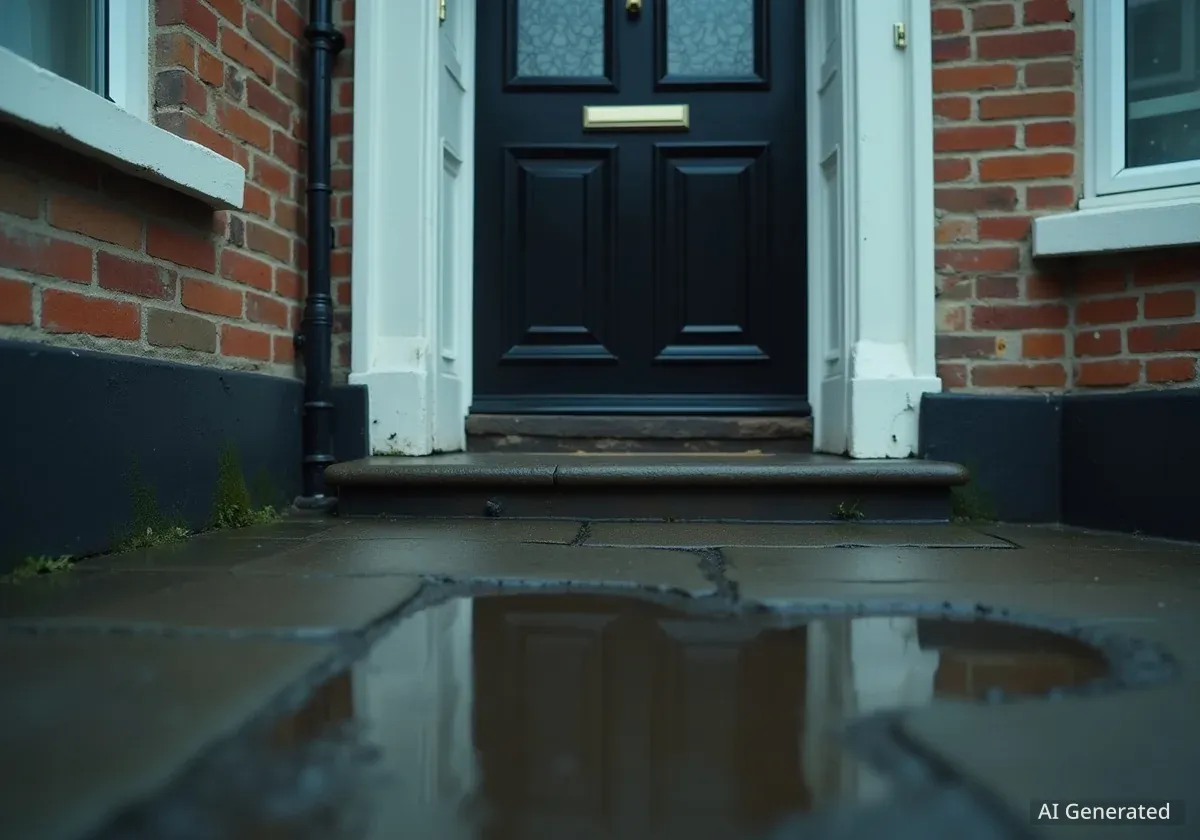One year after a catastrophic flood submerged homes on Bulwer Street in Bootle, residents continue to live with the daily anxiety of a potential recurrence. The September 2024 event, caused by a United Utilities sewer system failure, forced dozens of families from their homes and has left a lasting psychological impact on the community.
Despite assurances and an £11 million investment from the water company, many residents say they have lost faith and now live in fear every time it rains. For them, the trauma of losing possessions and being displaced for months remains a vivid and painful memory.
Key Takeaways
- Residents of Bulwer Street, Bootle, are still dealing with the aftermath of the September 2024 flood.
- The flood was caused by a 'software fault' in a United Utilities sewer system, marking the second major incident in 14 years.
- Many families were displaced for up to seven months, living in temporary accommodation.
- United Utilities has invested £11m in network upgrades but residents remain skeptical and fearful.
- The experience has had a significant long-term psychological impact, causing ongoing anxiety and stress.
A Community Still Recovering
On September 30, 2024, emergency services were dispatched to Bulwer Street as dirty water inundated homes, forcing evacuations, some of which required rescue boats. This was not the first time the street had faced such a disaster; a similar flood occurred in 2013, leaving veteran residents with a deep-seated distrust of the infrastructure meant to protect them.
The floodwater destroyed furniture, electronics, and irreplaceable personal items like family photographs and heirlooms. For many, the financial cost was significant, but the emotional cost has proven to be even greater.
The Lingering Trauma of Displacement
Lindsey Smith, 44, and her 15-year-old autistic daughter were among those forced to leave their home. They spent seven months in a hotel apartment in Liverpool city centre, a period Lindsey describes as isolating and detrimental to her health. The experience has left a permanent mark.
"It’s really hard because I try to reassure her it won’t happen again, but deep down, I know she doesn’t believe that," Lindsey explained. "I can’t tell you the toll it’s had on my health. You do get flashbacks about it. It was an awful time for us and I don’t want to ever experience anything like that ever again."
Lindsey recalls the panic as they returned from a shopping trip to find water entering their house. The memory of wading through contaminated water remains a source of distress for her and many of her neighbours.
Rising Flood Risk
According to a report by Sefton Council, flood events in the borough increased by over 70% in the year leading up to the Bulwer Street incident. In September 2024 alone, average rainfall was 150-200% higher than normal.
Living with Constant Anxiety
For residents who have lived through multiple floods, the fear is a constant companion. Joan Porter, 64, calls herself a 'three-time veteran' of the Bulwer Street floods. She and her husband spent six months living with their daughter while their home was being restored.
Despite the extensive and costly refurbishment, Joan finds it difficult to relax. The sound of heavy rain triggers immediate anxiety.
"When it’s heavy rain, you’re just constantly looking out the window, watching that grid, making sure it goes down," she said. "You’re just living on your nerves and we’re all living in fear."
Joan is unconvinced by official reassurances. "Whatever they say, it’s not ‘if’ it happens again, it’s ‘when’ it happens again," she stated, recalling similar promises made after the previous flood. "They forget that I’ve heard them say ‘it wouldn’t happen again’ last time, and look what happened."
An Unforgettable Aftermath
Linda Crilly, 70, experienced both the 2013 and 2024 floods. Drawing from her previous experience of being moved into temporary accommodation, she and her husband decided to stay in their home during the clean-up process this time. She described the conditions as chaotic and difficult.
"It was like living in Beirut! That was the way I described it at the time," Linda recalled. The restoration process was disruptive, involving digging up her living room floor and replacing it with tarmac, which filled the house with a powerful smell. "The whole house smelled like a road!"
Like her neighbours, Linda feels that the fear of rain now dominates her life. "I personally don’t look out the window anymore, but my husband does, and he’s like ‘the street is starting to flood again’. I’ve got to the stage now where I think, I’m not King Canute, I can’t hold it back. If the rain is going to come in, it’s going to come in."
Official Cause of the Flood
Sefton Council's official report identified the primary cause of the September 2024 flood. It stated: "Whilst the area is known to have significant risk of flooding from surface water, the main cause of the flooding during this event was due to a failure of the automated control system in the combined sewer, operated by United Utilities."
United Utilities' Response and Investment
United Utilities conducted its own investigation into the incident, attributing the failure to a 'software issue' that prevented the automated system from functioning correctly. The company insists the problem has been resolved.
In a statement, a spokesperson for United Utilities addressed the community's concerns and outlined the steps taken since the flood.
"We understand that flooding is a huge concern for residents in the area and remain committed to doing everything we can to ensure the long-term resilience of the sewer network," the spokesperson said.
New Measures to Prevent Future Floods
The company has detailed several new preventative measures, including:
- An £11 million investment to enhance the local sewer network.
- Installation of additional sensors within the network for better monitoring.
- Commitment to manually monitor the system during periods of heavy rainfall.
The spokesperson added, "We will continue to play our part in rebuilding the local community and providing support where needed."
However, for the residents of Bulwer Street, these promises offer little comfort. The emotional scars from being forced out of their homes and the constant fear that it could all happen again have profoundly changed their relationship with the place they call home. One year on, the community is repaired, but its sense of security remains broken.





